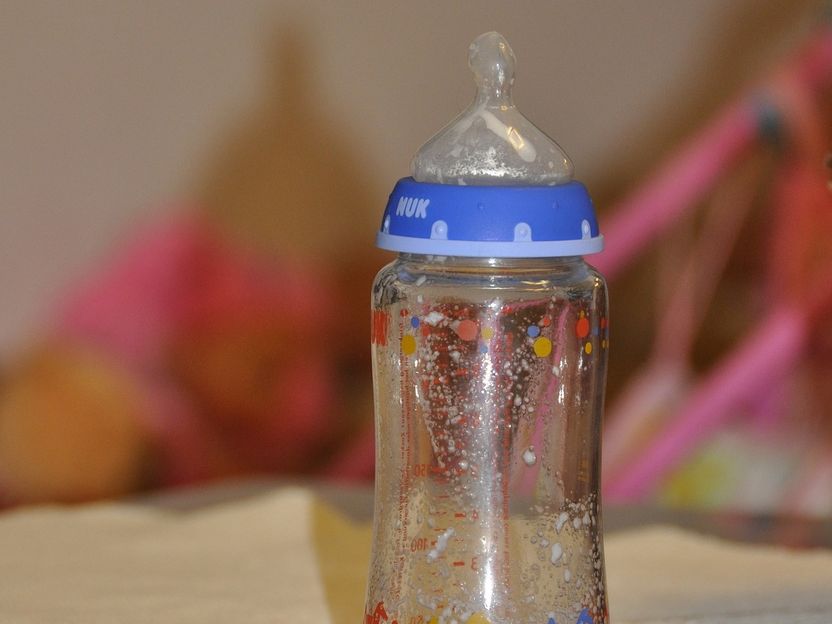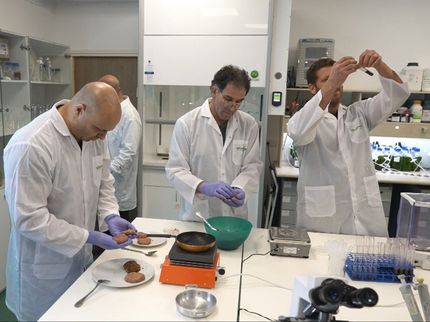Create sustainable baby milk with algae-based omega 3s
Baby milk companies have an opportunity to be at the forefront in championing sustainability by switching to fish oil substitutes. At the same time, brands can harness algae oil’s safety, naturalness and purity properties as a value-added ingredient.

karin_van_Duke / Pixabay
Parents are aware of the importance of omega-3 fatty acids as a crucial component in baby milk. The emerging plant-based baby milk segment can utilise algae oil as its source of omega-3 fatty acids.
Seaspiracy raises questions about the sustainability of fish oil
The Netflix documentary, Seaspiracy has reignited the debate about the sustainability of seafood. The popular documentary raises questions about seafood as a sustainable food source.
Fish oil is one of the major ingredients in baby milk with two in five global baby milk launches in the year to May 2021 containing oil derived from fish, according to Mintel GNPD.
Growing consumer concern about sustainability and interest in plant-based food suggests that it may be time for baby milk and food makers to reconsider the use of fish oil and look at alternatives.
UK-based Kendamil has taken the opportunity to promote the fish oil-free narrative by proudly claiming it is the “only baby milk in the UK that doesn’t use fish oil”. Kendamil uses omega-3 from marine algae in its baby milk.
Algae oil can be positioned as a more sustainable and cleaner source of omega-3
With marine pollution getting more serious, brands can explore algae oil as a viable substitute for fish oil. Algae-based omega-3 fatty acids (eg DHA, EPA) offer a more sustainable source. Algae grows quickly using fewer resources (eg freshwater, arable lands) and does not contribute to overfishing.
As algae are cultivated in a controlled environment, it offers extra assurance in terms of safety, cleanliness and ocean-borne contaminants. In Thailand, more than two in five of parents avoided processed fish products due to concern about toxins in processed fish (non-parents: one-third).
Food safety is high on the agenda for parents when it comes to baby milk. The recent heavy metal contamination scandal in the US has forced some brands like Beach-Nut to terminate the production of single grain rice cereal, while others look for alternative ingredients.
Algae-based omega-3 can meet the needs of parents drawn to plant-based baby milk
Plant-based Prémibio Prémiriz with DHA from algae (France)
Baby milk companies are shifting their attention to plant-based milk to meet parents’ demand for “clean”, allergen-free infant formulas. Such products can be an option for toddlers with a cow’s milk allergy. They can also target parents who want to give their toddlers plant-based nutrition.
Omega-3 fatty acids are an important component in baby milk, and parents are aware of this. In China, seven in 10 parents who fed their babies with infant milk formula have heard of DHA and know its role. Having a plant-based source of DHA will improve the nutritional profile of plant-based baby milk.
Large firms like Nestlé are exploring the application of microalgae in plant-based products. In 2019, Nestlé entered into a partnership with Corbion, the global market leader in algae ingredients, to develop the next generation of microalgae-based ingredients for plant-based products.
Plant-based infant formula opts for plant-based EPA/DHA extracted from marine algae
- Bébé M Follow-On Formula is made from rice protein hydrolysates and manufactured using a cold process without palm oil. The infant formula contains EPA/DHA from marine algae (lithothamne, spirulina) (France).
- Earth’s Best Non-GMO Plant Based Soy Baby Formula is lactose-free and made with non-GMO soy. The baby formula contains DHA from algae oil (schizochytrium) (US).
- Gerber Good Start Soy Infant and Toddler Formula is made with soy proteins to ease digestion for tiny tummies that are milk- or lactose-intolerant. The formula contains DHA from algae oil (crypthecodinium cohnii) (US).
Algae oil can be a source of omega-3 in baby food
Baby food manufacturers can turn to algae oil as the source of omega-3. Algae oil does not come with any fishy aftertaste and has no fish oil smell. Moreover, algae oil lacks cholesterol.
Algae oil is also free from fish allergens. In the US, one in 10 parents with children under five years old say their children have food allergies, according to Mintel research on feeding the family.
Algae oil is ideal for plant-based baby foods. Cerebelly, which adopts a “veggie-first” approach, uses algae oil as its source of DHA.
What Mintel thinks
Baby food and milk manufacturers, which use seafood as part of their ingredients, can start communicating about sustainable seafood. This will in turn lead to future opportunities for more traceability schemes and algae oil as a viable fish oil substitute. The biggest algae oil application will be in baby milk followed by baby food, with Asia emerging as the region with the highest potential.





























































